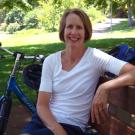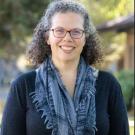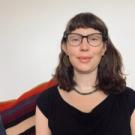Event Date
Event Overview
First and last mile connectivity has always been a major consideration in public transportation modeling and planning. Ph.D. candidate Reid Passmore, of the Georgia Institute of Technology, will share his progress on developing a framework for systematically assessing cycling infrastructure improvements using the shortest path model, BikewaySim. While there are many models used throughout the US that can simulate walking trips from and to transit, there are few that do the same for bicycles. This model creates shortest routes that are consistent with the preferences that current and potential cyclists’ have for infrastructure. This framework will aid planners and engineers to assess the impacts of proposed cycling infrastructure projects, so that projects that stand to have the greatest impact on the actual and perceived safety of cycling are selected over those that would be less effective.
We will also hear from Professor Beth Ferguson, whose ongoing research includes an exploration of travel behavior and best practices to increase micromobility and public transit ridership post-COVID-19. Professor Ferguson’s project with Dr. Angela Sanguinetti, titled Integrating Micromobility with Public Transit: A Case Study of the California Bay Area, is nearing completion. Micromobility is well-suited to address first- and last-mile connectivity with public transit by extending the catchment area around transit stations and bridging gaps in the existing transit network, ultimately facilitating access to jobs and services. However, the uptake of micromobility depends on a variety of factors including environmental design features at and around public transit stations that support or inhibit access. Professor Ferguson will also draw on her work on Environmental Design for Micromobility and Public Transit, funded by the University of California Institute of Transportation Studies from the State of California through the Road Repair and Accountability Act of 2017 (Senate Bill 1).
View Reid Passmore & Dr. Kari Watkins' Presentation Slides
View Beth Ferguson's Presentation Slides
Moderator

Dr. Susan Handy is a professor in the Department of Environmental Science and Policy at the University of California at Davis. She has courses in the Environmental Policy and Planning major and in the Transportation Technology and Policy Program. Her research focuses on the relationships between transportation and land use, particularly the impact of land use on travel behavior, and on strategies for reducing automobile dependence. Her recent work includes a series of studies on bicycling in Davis, including an exploration of the formation of attitudes towards bicycling, a study of factors affecting bicycling to high school, and the use of electric-assist bicycles. She recently completed projects for the California Air Resources Board and Caltrans on the impacts of “smart growth” strategies on vehicle travel. She serves on the Committee on Women’s Transportation Issues and the Committee on Transportation Education of the Transportation Research Board.
Speakers

Reid Passmore (he/him) is a PhD candidate in Transportation Systems Engineering at the Georgia Institute of Technology and is currently a visiting scholar at the University of California Davis. Reid’s research interests are in sustainable transportation, but his focus is on cycling network design. His dissertation research is on leveraging cycling route choice and user preferences for cycling infrastructure to visualize the increase in bikeability from new cycling infrastructure using the open-source tool BikewaySim.

Dr. Kari Watkins is a leading expert in transit, whose research contributes to the goal of expanding mobility options by improving transit, walking, bicycling, and other alternatives to driving. Her projects are wide-ranging, including basic behavioral research that identifies factors influencing individual travel choices and overall travel patterns as well as applied research carried out in partnership with transportation agencies that leads to innovation in practice. She is especially well-known for her development of the award-winning OneBusAway program, which paved the way for providing real-time next-bus countdown information to riders. Some of her more recent efforts are an avid cyclist using novel survey research, crowdsourced data, and instrumented bicycles to understand cyclist infrastructure preferences.

Beth Ferguson is an Assistant Professor of Design at UC Davis. She is an ecological designer whose practice blends industrial design with sustainable transportation, solar engineering, climate resiliency, and public engagement. She is the founder of the Adapting City Lab whose work includes micromobility systems, sustainable product design, and resiliency planning for a changing climate. Ferguson is also the director of Sol Design Lab, a design/build studio that specializes in solar charging stations and was awarded the Austin Green Award in 2017 for the Austin Energy Electric Drive Solar Kiosk. She participated in the Resilient by Design Bay Area Challenge with the interdisciplinary team Public Sediment, which won the Honor Award for Analysis and Planning from the American Society of Landscape Architects and the Best Places Award from the Environmental Design Research Association in 2019. Her interdisciplinary work has been exhibited at the Exploratorium Museum, Cooper Hewitt Smithsonian Design Museum, TEDx Presidio, Bay Area Maker Faire, and Otago Museum in New Zealand. Her collaborative work has been featured in Fast Company, The New York Times, BBC, and Texas Architect Magazine. She is a San Francisco Autodesk Technology Center Fellow, a Community Engaged Learning Faculty Fellow, and a former ZERO1 American Arts Incubator Fellow.
